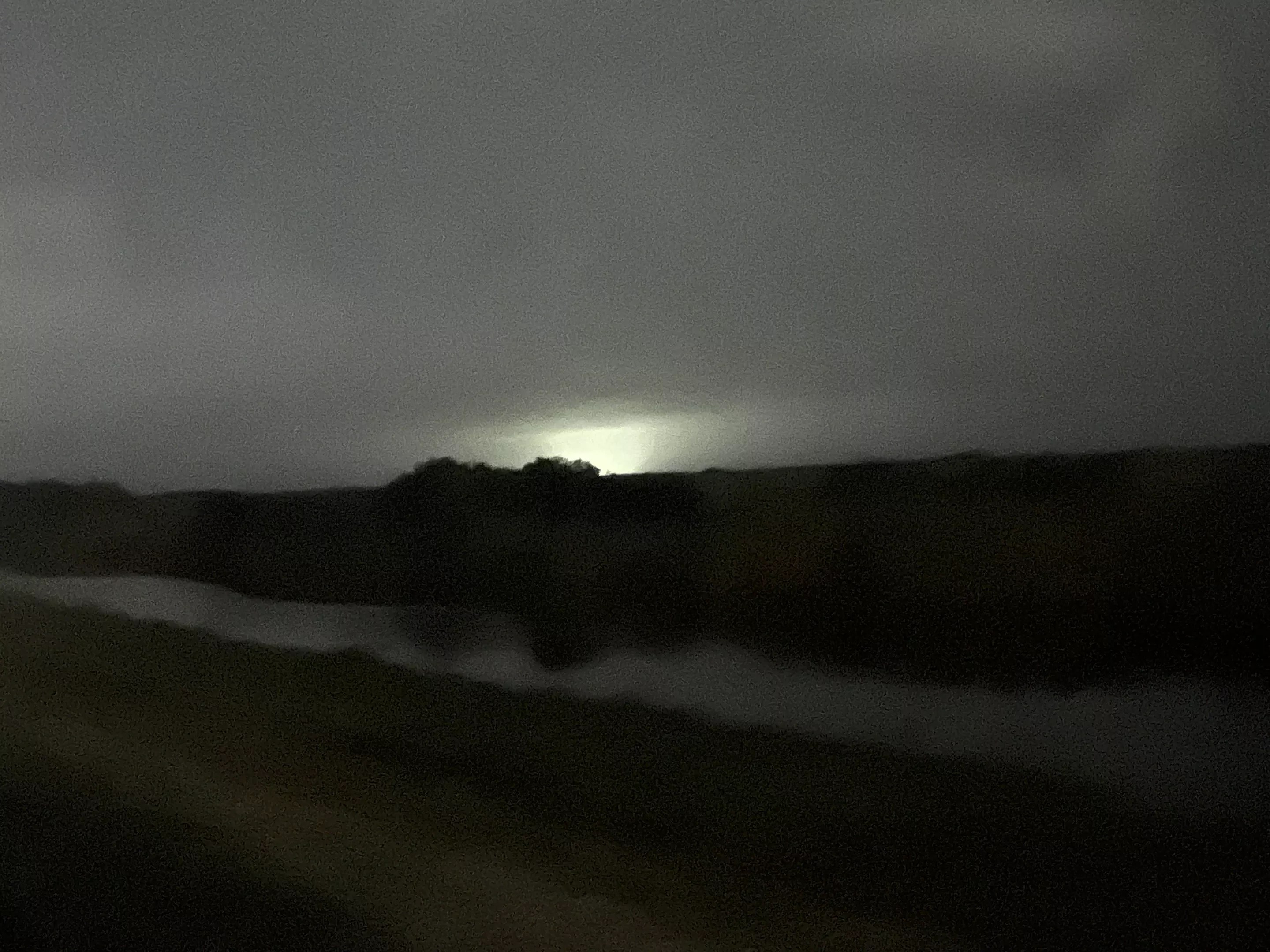
Photo by Betty Osceola

Audio By Carbonatix
Big Cypress National Preserve teems with wildlife: the endangered Florida panther hunts for its prey amidst a 729,000-acre swamp encompassing towering trees and hungry alligators. About a million visitors make their way to the site, one of Florida’s last dark-sky sanctuaries, each year.
Now, thanks to Alligator Alcatraz, the hastily built, controversial immigrant detention center that officials say will hold up to 3,000 detainees, Big Cypress is on the brink of losing its dark-sky status.
Since 1974, when the U.S. National Park Service established it as the first national preserve, Big Cypress has stood as a cornerstone of nationwide conservation efforts. In 2016, DarkSky International certified it as a Dark Sky Park for its efforts to restrict light pollution and preserve naturally dark night skies. It is one of only three designated dark sky places in Florida.
“With the extent of urbanization in the eastern United States it is becoming nearly impossible to experience the night with little impact from artificial light pollution,” a press release announcing the 2016 designation reads. “Here in south Florida, away from the urban development of the east and west coasts, Big Cypress National Preserve has one of the last protected night skies where visitors can still enjoy the splendor of the Milky Way and see a night-sky strewn with thousands of stars with only the naked eye.”
According to Eve Samples, executive director of the environmental advocacy group Friends of the Everglades, Big Cypress’ status as a dark sky preserve is vital for many reasons, including habitat protection for Florida’s endangered species, many of whom are nocturnal.
“Many of the threatened and endangered species in this part of the Everglades are nocturnal, and it’s important we don’t have light pollution disrupting their activity. The Florida bonneted bat is actually one of them; this is a critical habitat for the area,” Samples says.
Samples notes that Florida panthers, many of whom wear radio collars, have been tracked on the site. “Tracking data shows not only have they walked on the property, they’ve walked on the runway where now this detention center has been erected,” she tells New Times.
Samples also stressed the importance of protected dark skies for both endangered animals and humans. “It’s a harm to humans who enjoy stargazing, and this is one of the rare places we can get away from the city lights,” she says.
Local activist and Miccosukee tribal elder Betty Osceola also raised awareness of the issue on Instagram, posting a photo of the now partially illuminated Big Cypress Preserve, visible from the International Space Station.
“I guess the Big Cypress can kiss their Dark Skies Designation goodbye,” she wrote in the accompanying caption.
In late June, Friends of the Everglades and the Center for Biological Diversity filed a lawsuit against Miami-Dade County, Secretary of Homeland Security Kristi Noem, acting U.S. Immigration and Customs Enforcement (ICE) director Todd Lyons, and Florida Department of Emergency Management executive director Kevin Guthrie.
The complaint asserts that Alligator Alcatraz violated the National Environmental Policy Act, as well as several state and local laws, by proceeding without an environmental impact study or public comment.
“Friends of the Everglades’ and the Center’s members are being injured by Defendants’ unlawful actions, which threaten the integrity of Big Cypress National Preserve’s waters and pristine night skies, the wellbeing of the plants and wildlife living there, and thus the Plaintiffs’ interests in them,” the complaint reads.
Friends and the Center are also injured by being deprived of critical information and a public process to analyze and address significant environmental impacts associated with the detention center.”
Samples also criticized Gov. Ron DeSantis for his involvement in the facility, despite his previous pledges to support the environment as a “pro-Everglades” governor when he ran in 2019.
“We’re concerned about his reversal of his position to protect the Everglades,” Samples says. “This ‘Alligator Alcatraz,’ as they’re calling it, is one very concerning example, but we also had the attack on state parks last summer.“
“Before this detention center threat emerged, we were working to fight a rock mine proposal in the footprint of the historic Everglades, an 8,000-acre rock mine, and the DeSantis administration approved the permits for that,” Samples says. “So this is not an isolated incident, and you can’t call yourself the Everglades governor and allow this kind of disturbing activity to occur in the Everglades.”